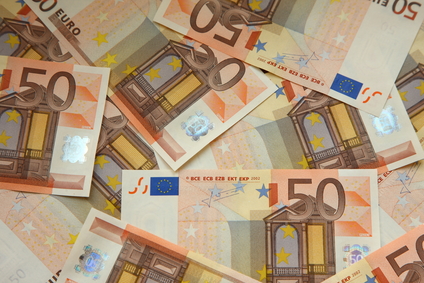Money, money, money: Dutch millionaires hit a high


They aren’t necessarily known for flashing their cash, but the number of millionaires in the Netherlands has reached a 10-year high.
Dutch statistics office CBS tracks the number of people declaring assets of more than €1million to the taxman and found that at the start of 2016, this included 112,000 households.
This is the highest figure since 2006 – and the numbers have increased, even if inflation is taken into account, reports the office.
The data, compiled on behalf of private bank Van Lanschot, feeds a national obsession with the lives of the wealthy and colourful reports on where, and how they live. Millionaires tend to have their own businesses, with about a fifth involved in agriculture, forestry or fishing, and including many cattle farmers.
Laren
Laren, an ancient town in North Holland, has the most millionaire households, while the province with the most six-figure occupants is Zeeland.
The group tends to be slightly older than average, with three-quarters aged 50 or older and just 5% under 40. They are more likely to have a higher level of education and degrees than the average person.
In a report on a decade of trends amongst Dutch millionaire, Van Lanschot reports that the number of Dutch rich was pretty stable from 2006 to 2016.
Older
The typical candidate, it says, is a man of 58 (although the top-earning women in million pound households tend to be a little older).
Peter Hein van Mulligen, of the CBS, said in a video online: “The Dutch economy is growing, there are more jobs and so many Dutch people are seeing their income increase. Most millionaires have earned their money with their own company, and mostly it takes a while.
“Only a handful of people are millionaires before 40. They are also more likely to be higher-educated, and that difference is bigger the older they are.”
Panama
He added to DutchNews.nl: “Most of them are pensioners who had their own businesses, where they live is pretty stable and – although we don’t know much about their household spending – they do tend to have bought classic cars.”
The figures, he said, are based on what is declared to the Dutch tax authorities, and deduct the value of people’s own homes and mortgage debt.
“It’s all the assets the taxman knows about,” he added, “unless they have some in Panama.”
Thank you for donating to DutchNews.nl.
We could not provide the Dutch News service, and keep it free of charge, without the generous support of our readers. Your donations allow us to report on issues you tell us matter, and provide you with a summary of the most important Dutch news each day.
Make a donation